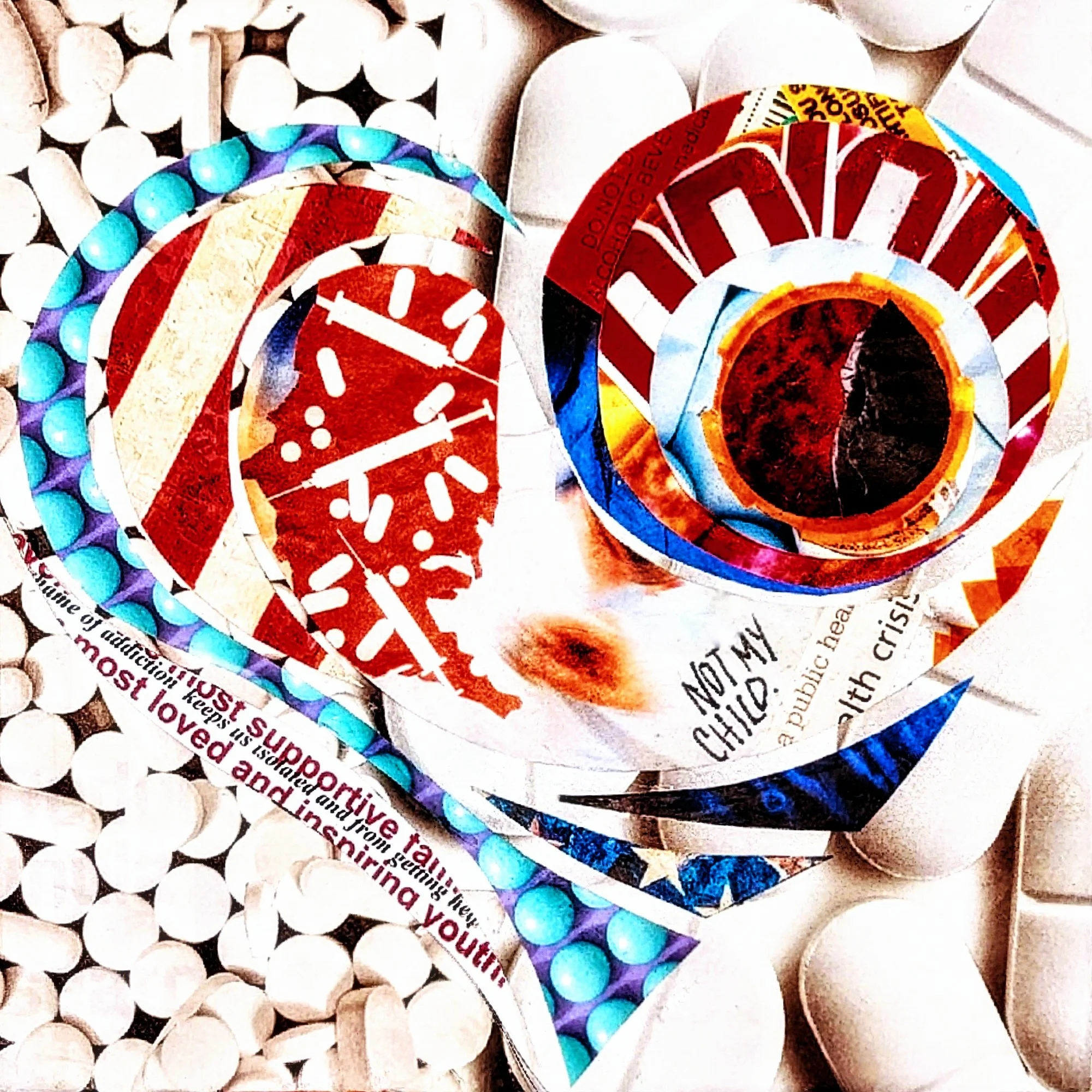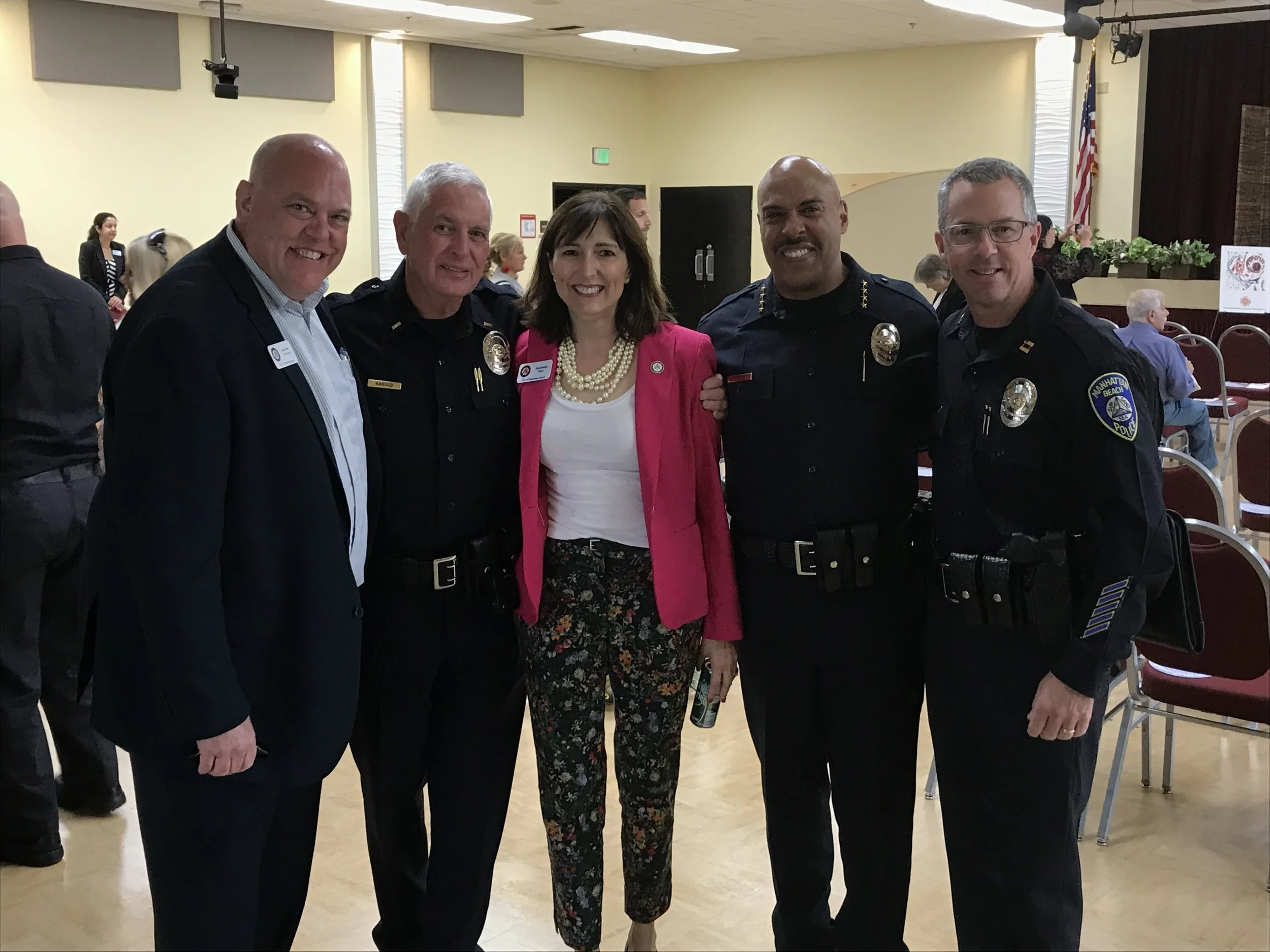Our Kids and Opioids: It's Time to Talk
/Lonely. Ashamed. Guilty. Parents who have seen their child lose a battle to drug addiction experience a myriad of emotions. In high-achieving communities like Manhattan Beach, the norm is to hide the addiction problem out of the fear of rejection or embarrassment. Sadly, experts say this stigma only heightens the problem. Mayor Amy Howorth, City of Manhattan Beach, wants to change that and has made a clear call to local parents.
“Let’s stop judging. Please don’t say ‘not my kid.’ Please listen,” said Howorth to over 60 attendees at a panel titled “Our Kids and Opioids: It’s Time to Talk.” Joining Mayor Howorth were Cynthia Strand, a Manhattan Beach mom who lost her son to opioid addiction and Dr. Moe Gelbart, executive director of the Torrance Memorial Thelma McMillen Center for Alcohol and Drug Treatment.
Gelbart treats teens from all over the South Bay. According to him, it is common for the addiction to begin with prescribed pain killers. “They quickly hijack your brain,” he explained. “Teens like the high feeling that it produces and if mixed with alcohol or other drugs it becomes deadly.”
Artwork created for event by Jennifer Jenkins Dohner
There are nearly 150 overdoses per day in the United States, the equivalent of one daily fatal commercial airplane crash.
Two years ago, Justin Strand, a former Mira Costa High School athlete, died from opioid addiction at the age of 30. The Strand family suffered through 12 years of his failed treatments, incarceration and struggle with homelessness. His mom has found the courage to share her son’s story to help other parents.
“Don’t be their best friend,” Strand advices. “Be the best parent.” She says that sweeping the problem under the couch is not the solution and recommends that parents get help. In memory of Justin, she started Blankets of Love South Bay, a group that knits blankets and donates them to the babies of addict moms. “We are here. Reach out, it’s lonely if you don’t,” she said.
The Manhattan Beach Police Department staffed safe Rx disposal drop boxes at the event.
Oftentimes, teens acquire drugs directly from the medicine cabinets of their parents or friends. Experts recommend proper disposal of medications. The City of Manhattan Beach Department lobby has a disposal box that’s available for drop-offs 24/7.
According to Mayor Howorth, the conversation will continue. In the audience were parents, members of the Manhattan Beach Police Department, therapists, pharmaceutical experts and school representatives.
Free copies of Dreamland were funded by Steel Partners Foundation as a gift to the first 50 attendees. The first 15 received a Rx lock bag, courtesy of the Thelma McMillen Center.
Mayor Amy Howorth and Laura Short McIntire, Creative Director of South Bay Families Connected (SBFC) spearheaded the event. SBFC first launched the Families Connected Opioid Awareness Project in 2017 with an event at Peninsula High School hosted by former principal Mitzi Cress. The goal was to educate South Bay teens, parents, teachers, and administrators about the dangers of prescription drug misuse and abuse, and to start a conversation that encourages safe use, storage, and disposal of prescription drugs to keep them out of the hands of kids. In 2018 that goal remains the same, but with a broader vision that focuses on reducing the stigma that surrounds this issue and to increase awareness that opioid abuse and addiction can happen even in the most supportive families, and to the most loved and inspiring youth.
Additional information about opioid support is available at the South Bay Families Connected website. This event was co-sponsored by the McMillen Family Foundation, Thelma McMillen Center, Steel Partners Foundation, Blankets of Love South Bay, City of Manhattan Beach, Manhattan Beach Police Department and Beach Cities Health District.
(NOTE: a video of the event will soon be made available on the SBFC website.)
By, Francis Villalpando, MPA (images by SBFC)
School Health Programs Coordinator,Youth Services
Beach Cities Health District










